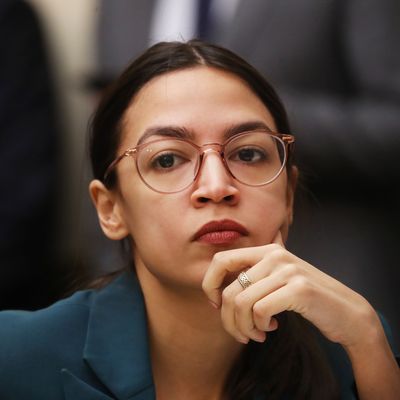
The American political system is dominated by a two-party duopoly that uses its control over election laws to suppress challenges to its power. That statement might sound like Nader-ite agit-prop, but it is a plain fact, widely recognized by scholars of comparative politics. “Perhaps the clearest case of overt partisan manipulation of [election] rules is the United States, where Democrats and Republicans appear automatically on the ballot, but third parties and independents have to overcome a maze of cumbersome legal requirements,” Pippa Norris, the McGuire lecturer in comparative politics at Harvard’s Kennedy School of Government — and former director of democratic governance at the United Nations Development Program — wrote in 2005.
Meanwhile, thanks to partisan polarization, most American voters live in congressional districts where there is no serious two-party competition, and most American states are effectively governed by one-party rule.
These conditions are decidedly less than ideal, from a democratic perspective. But they can nevertheless be reconciled (at least, to an extent) with competitive elections and government accountability — so long as voters can vigorously contest power within each major party. A Democratic House incumbent representing a district in New York City will be all but invulnerable in a general election. But if Democrats encourage intraparty democracy, then that incumbent’s constituents will still be able to hold him or her accountable in a contested primary.
Unfortunately for our republic, the House Democratic leadership signaled Thursday that it believes democracy has no place within the Democratic Party. As the National Journal reports:
The Democratic Congressional Campaign Committee is making an early move to deter primary challenges against sitting incumbents in the caucus with a new policy aimed in part at protecting the new majority.
The campaign arm on Friday sent out a list of hiring standards to more than 100 political firms, including one provision that made clear it will neither contract with nor recommend to House candidates any political vendors that work to oust sitting members of Congress.
The new protocol, intentionally debuted early in the off-year before most campaign hiring begins, presents a stark financial deterrent to the country’s top firms that provide essential services ranging from polling to TV advertising to strategy. It could cripple would-be primary opponents’ ability to entice top talent to join their staff. The DCCC independent-expenditure arm doles out millions in contracts to consultants and drives more revenue toward them by connecting campaigns with vetted operatives.
“The DCCC is often times the gatekeeper for consultants to get to candidates,” said Ian Russell, a campaign media strategist and former top official at the committee. “Unless you have a steady stream of income coming from another source, it would be very difficult to navigate the House world if you were shut out by the DCCC.”
The DCCC’s rationale for this move is straightforward: The organization exists to maximize the Democratic Party’s chances of holding congressional majorities — and since (all else being equal) incumbents are much more likely to win general elections than newcomers, protecting incumbents is a core part of its mission.
This argument may be coherent, but it is not credible. For example, if preserving majorities were its sole concern, the DCCC could discriminate against vendors who assisted primary challenges in competitive districts, while welcoming those that aided progressive insurgents in safe “blue” ones. This isn’t an idle point. Two of the progressive groups that are currently recruiting 2020 primary challengers — Justice Democrats and Data for Progress — have declared their intention to target moderate Democrats in (relatively) safe districts, like Texas representative Henry Cuellar, and Massachusetts’s Stephen Lynch. You don’t need an across-the-board blacklist to protect Democratic majorities, only to insulate Democratic incumbents from intraparty competition.
What’s more, it’s far from clear that the DCCC’s policy will even succeed on its intended. The small-dollar donor armies that have freed Alexandria Ocasio-Cortez from the burden of fundraising — and filled the coffers of Bernie Sanders’s nascent 2020 campaign — aren’t going anywhere. And neither are progressive interest groups like NARAL Pro-Choice America, which backed Marie Newman’s attempt to oust pro-life Illinois Democrat Dan Lipinski last year. The DCCC can’t eliminate the demand for political operatives who are willing to assist left-wing primary challenges. And by limiting the supply, the Democratic establishment threatens to give a monopoly to its most ideologically committed adversaries, and thus, accelerate the growth of upstart firms like Grassroots Analytics and Data for Progress.
But all these considerations are secondary. The principal problem with the DCCC’s policy is that — in a political system where interparty competition is already severely limited — suppressing intraparty competition in all House races is an unforgivable infringement on democracy.
There is no equivalence between the two major parties’ attitudes toward democracy. And for supporters of self-government, there is no viable alternative to vying for power beneath Team Blue’s tent. But a Democratic Party that uses its market power to suppress electoral competition does not deserve its name.






























